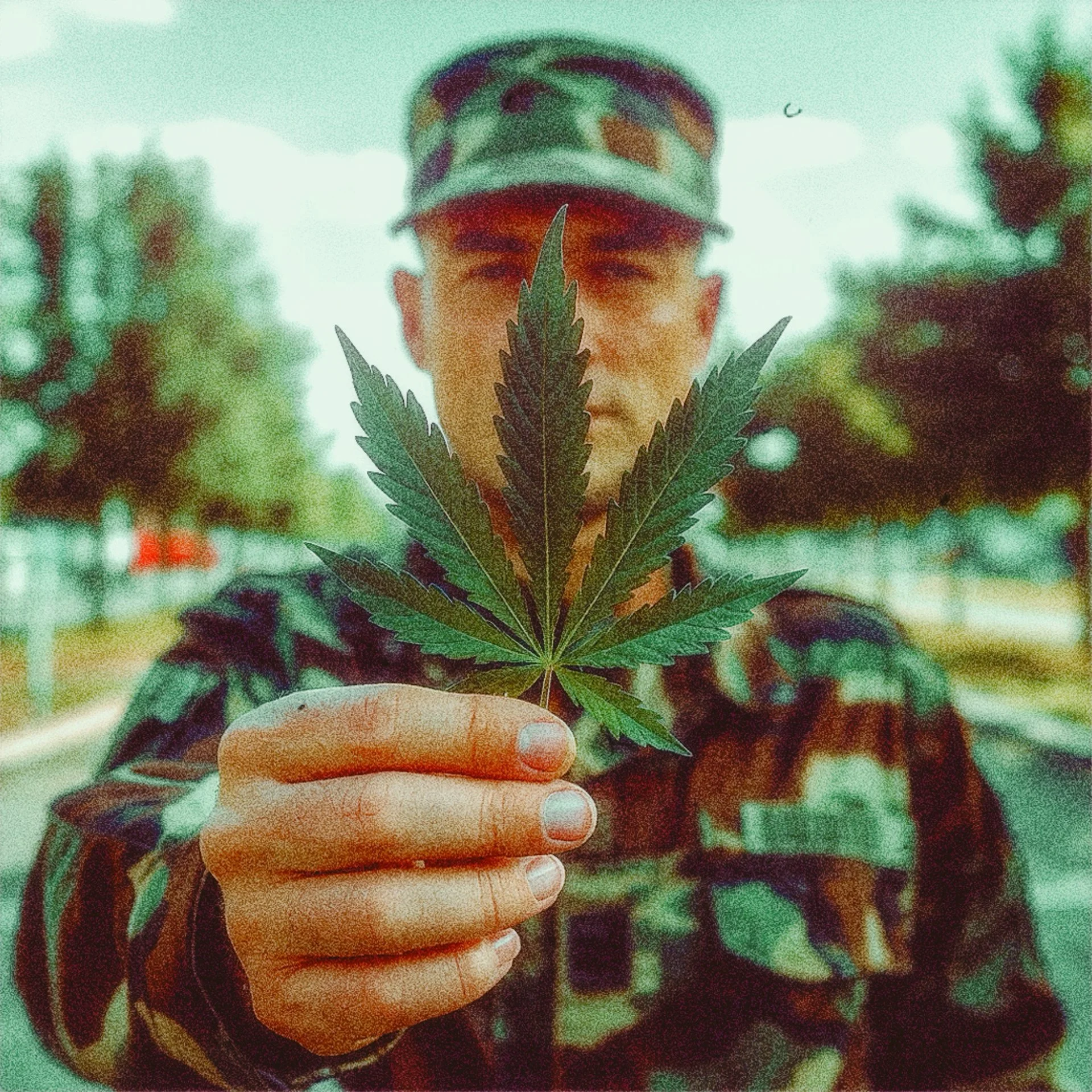Using Marijuana May Relieve PTSD in Veterans—New Study
Post-traumatic stress disorder (PTSD) remains one of the most persistent and life-altering challenges facing military veterans. While traditional treatments—including psychotherapy and pharmaceuticals—can help, many veterans continue to experience distressing symptoms long after leaving service. Now, a newly published study in the September 2025 issue of Psychiatry Research adds weight to what many veterans have long reported: marijuana use may provide same-day relief from PTSD symptoms.
The federally funded observational study, conducted by a team from RAND Corporation, New York University, King’s College London, the University of Southern California, and the University of Washington, tracked 74 recently discharged veterans with elevated PTSD symptoms. Using wearable devices and daily self-reported questionnaires, researchers found that veterans reported less severe PTSD symptoms and reduced negative affect on days they consumed cannabis.
Context and Timeline
Interest in cannabis as a potential therapeutic for PTSD has been rising steadily over the past decade. In 2021, a study summarized by Veterans of Foreign Wars suggested that cannabis use over the course of a year was linked to meaningful symptom reduction and even diagnostic remission in some cases. But the evidence has never been clear-cut.
In 2015, a longitudinal study led by Wilkinson et al. found the opposite—veterans who began using marijuana after PTSD treatment had worse long-term outcomes. That research fueled skepticism among many clinicians.
A meta-analysis published in January 2024 offered a more nuanced view. It showed that trauma-focused therapies remained effective regardless of whether participants used cannabis, suggesting the drug neither significantly undermined nor enhanced structured therapeutic interventions.
The regulatory climate has also shifted. In November 2024, the Food and Drug Administration approved the first large-scale, randomized clinical trial of smoked high-THC marijuana for PTSD in veterans. That trial, now underway, aims to enroll 320 participants—offering the most rigorous test yet of cannabis’s potential benefits and risks.
The latest study’s publication in August 2025 brings fresh observational data into the conversation, reinforcing earlier anecdotal reports of short-term symptom relief.
Core Findings
The new study is notable for combining objective physiological data from wearable devices with subjective symptom ratings. Veterans tracked sleep quality, physical activity, and stress markers alongside daily surveys of PTSD symptom severity and emotional state.
The most consistent finding: On cannabis-use days, participants reported lower PTSD symptom scores and decreased negative emotional states. The effects were immediate, observable within the same day.
Lead researchers emphasized that these results do not prove cannabis is a cure or even a long-term treatment for PTSD. The study design—non-randomized, single-site, and reliant on self-report—cannot establish causality. Still, the pattern was strong enough to warrant further investigation.
Stakeholders and Incentives
For veterans, any intervention that eases symptoms can be life-changing, especially for those who have found limited relief from existing treatments. Clinicians may see cannabis as a harm-reduction tool or a complementary option when conventional therapies fall short.
Policy makers and insurers will be watching for stronger evidence before considering coverage or expanding legal access. Federal agencies, including the Department of Veterans Affairs, must weigh promising early data against ongoing concerns about safety, dependency, and regulatory oversight.
Risks and Counterarguments
The small sample size and observational design limit generalizability. Previous randomized controlled trials have failed to show cannabis outperforming placebo in PTSD treatment, and some longitudinal data suggest it could worsen outcomes in certain populations.
There is also the issue of cannabis use disorder. Veterans, particularly those coping with trauma, may be at elevated risk of dependency. Any policy shift toward cannabis as a PTSD treatment would need robust screening and support systems to mitigate this risk.
Data to Watch
The FDA-approved high-THC clinical trial now underway could provide the clearest evidence yet. By following 320 veterans over time in a randomized setting, researchers can directly measure whether cannabis produces sustained benefits, no change, or harm.
Additional large-scale, controlled studies—ideally incorporating both biological and psychological outcomes—will be essential for shaping evidence-based policy.
Ethical Considerations
The debate over cannabis for PTSD intersects with larger questions of self-medication versus clinically guided care. While some veterans may use marijuana responsibly and experience real relief, others could delay or avoid proven therapies, relying solely on cannabis in ways that may not address the root causes of their distress.
Self-report bias is another challenge. Veterans who believe cannabis helps them may be more likely to rate their symptoms as improved, regardless of actual physiological changes.
Clinicians and researchers must tread carefully to avoid normalizing cannabis use without a clear understanding of its long-term safety and efficacy. At the same time, dismissing patients’ lived experiences risks alienating the very people most in need of care.
What This Means for the Conversation on Veterans, PTSD, and Cannabis
The new study does not settle the debate, but it does underscore the urgency of finding treatments that meet veterans where they are. If cannabis proves to offer reliable symptom relief with manageable risks, it could become part of a broader toolkit for PTSD care—one that includes therapy, medication, peer support, and lifestyle interventions.
For now, veterans considering cannabis should consult a qualified healthcare provider, ideally one familiar with both PTSD and cannabis medicine. Providers can help weigh the potential benefits and risks, guide dosage and strain selection, and monitor for adverse effects.
***
Marijuana Doctor is your premier destination for seamless medical marijuana licensing. Our compassionate team guides you with expertise, ensuring a smooth process. Discover the therapeutic benefits in a supportive environment that prioritizes your well-being.
Join a community championing alternative healing methods for a healthier life. Choose Marijuana Doctor for personalized, patient-centered care, and step into a revitalized future.
Follow us on Instagram!

